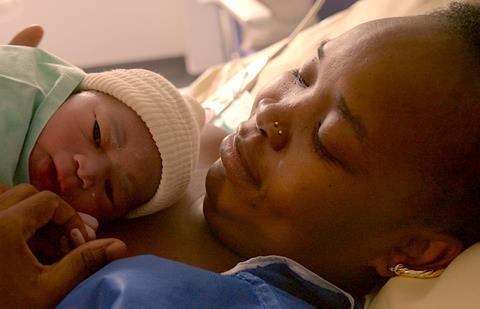Filmmaker Claire Simon’s own cancer diagnosis forms part of her candid exploration of the medical treatment of women

Dir: Claire Simon. 2023. France. 168mins
Cut up by the camera, female flesh has been fetishised and commodified through a mostly male gaze for well over a hundred years. With the intention of showing more than what’s just skin deep, veteran filmmaker Claire Simon has replaced the dramatic thrills of desiring gazes with a steadily paced examination of how women are treated with her epic documentary ode Our Body. With surgical precision and an empathic eye, Simon examines everything from fertility, abortion and IVF to gender transition and the menopause. Taking on one of cinema’s foremost obsessions with a compassionate and ethical approach, Our Body tells the hidden, forgotten and ignored stories of female bodies through their unhurried encounters with the extensive, often invasive, and wonderfully life-saving medical interventions at a Parisian public hospital.
A raging undercurrent cuts through the complacency of how women’s bodies have been treated
Our Body, which runs just shy of three hours, will no doubt draw comparisons with the work of American male contemporary Frederick Wiseman for its steady, observational approach and candid nature. But the all-female crewed film offers a unique feminist perspective that speaks to Simon’s prolific career, which spans documentary and fiction and boasts many accolades and prizes, especially for her work in documentary; God’s Offices (2008, about French family planning, won the SACD prize at Cannes in Director’s Fortnight, and her portrait of teenagers, The Graduation, won an award in Venice in 2016).
Following its debut in Berlin, Our Body plays at Visions du Réel where Simon has previously taken prizes home for her films The Patients (1990) and At All Costs (1995). Despite its lengthy run time, the film has already secured distribution in North America through Cinema Guild and positive reviews, along with likely further festival play, should boost its theatrical chances elsewhere.
The idea for the picture came from producer Kristina Larsen, whose work (Flight of the Red Balloon, Farewell My Queen) Simon has long admired. Larsen had spent two years in hospital, where she connected with some of the doctors who appear in Our Body. Simon was the perfect fit for the project, not least because it is her story, too: her desire to capture a patient being given a cancer diagnosis fatefully ended up as her own.
Given the gravity of that diagnosis, it would have been all too easy to turn the film’s focus on herself but Simon is restrained. It comes two hours into the film, and she allows her assistant photographer Céline Bozon to film her genuine bodily response – Simon rounds her shoulders as if to protect her body from the disease – before handing over ultimate control to editor Luc Forveille, who ensures her experience is presented tonally and temporally in line with that of every other woman in the film. There are no protagonists or single stories to be followed, just multitudes of experiences – at once singular and shared.
The film is unhurried to a generous degree, with a fly-on-the-wall approach to presenting difficult diagnoses, invasive treatments and even psychological consultations – one woman, nursing her newborn, weeps freely as she recounts her birth trauma in a moment of raw honesty about her experiences with a terse doctor. Simon presents the calm and the critical in equal measure: a woman gives birth while conversing with her midwife so calmly they could have been chatting over a cup of tea, while visceral surgery that is not for the faint-hearted cuts in every so often as a reminder of what’s hidden under hospital gowns, amid medical jargon and robotic procedures.
Notable moments include Simon showing us what endometriosis actually looks like during excision surgery and a filmed Caesarean section where amniotic fluid sprays at operating obstetricians. Most moving is when Simon focuses her camera on the small kindnesses taking place: as one woman is told she will be moved to palliative care, Simon pans down to her hand, being gently caressed by her nurse.
The film has too many tender moments to mention, and an effort to present balance includes a brief snippet of a protest outside the hospital gates concerning gynaecological choice and consent. A tonal interruption that isn’t fully explored, it is Simon’s only misstep, feeling tacked on rather than even-handed. Elias Boughedir’s score is used sparingly and only to punctuate appointments. Erik Satie’s Gymnopedie No 1 is the only recognisable piece of music, played diegetically when a patient requests classical music pre-op.
For a film concerning women’s bodies, there are few tears, almost no screams, and even questions concerning FGM are asked without judgement. Still, there is a raging undercurrent that cuts through the complacency of how women’s bodies have been treated, onscreen as in life. As one cancer patient quite simply puts it, “I thought it was normal for a woman to suffer.”
Production Company: Madison Films
International Sales: Films Boutique, contact@filmsboutique.com
Producers: Kristina Larsen
Cinematography: Claire Simon
Editing: Luc Forveille
Music: Elias Boughedir

























No comments yet